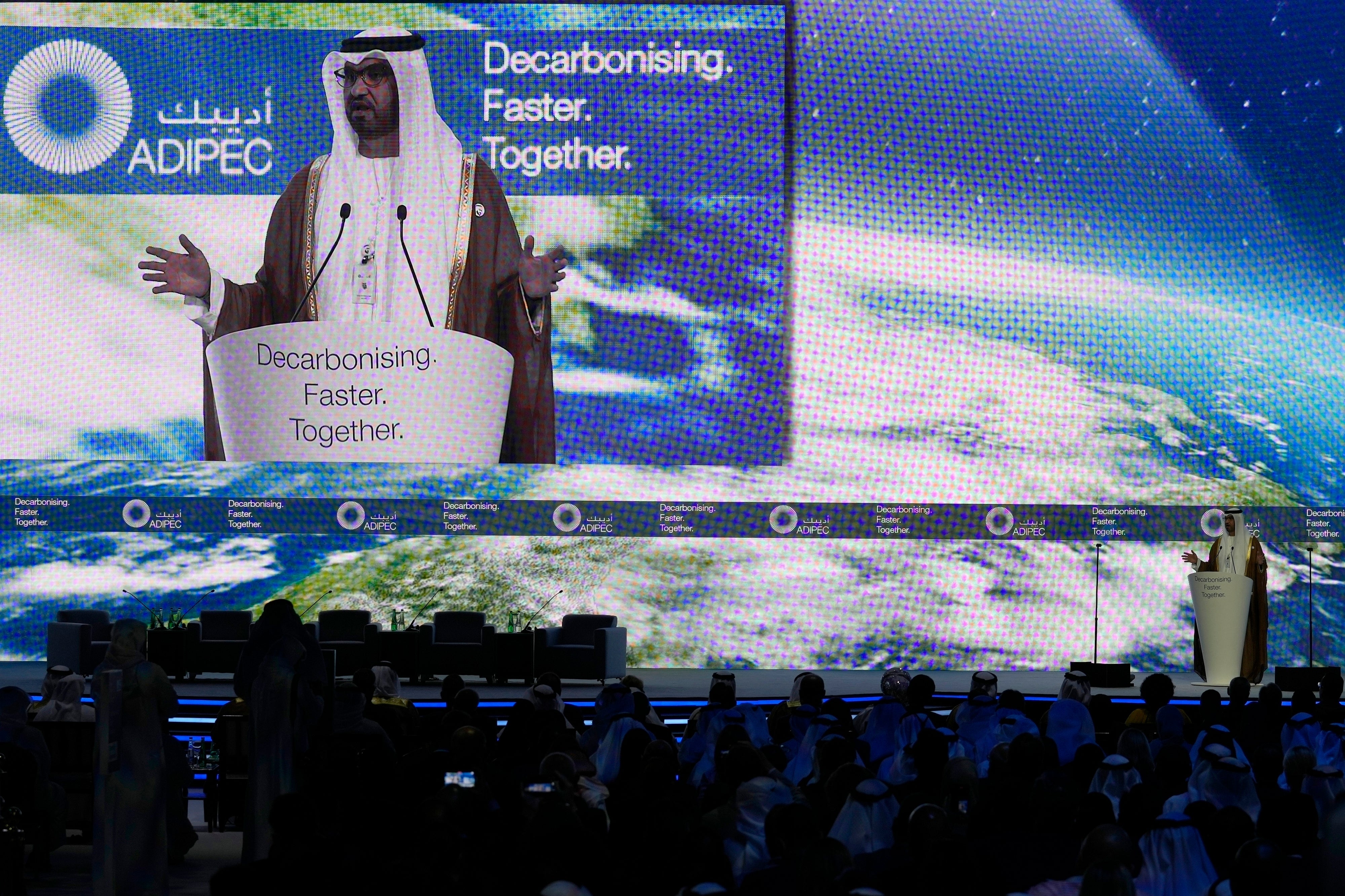The Independent's journalism is supported by our readers. When you purchase through links on our site, we may earn commission.
It’s easy to be cynical about climate talks, but Cop is the best we’ve got
As the annual global climate change convention begins, senior climate correspondent Louise Boyle outlines the messiness and necessity of Cop28


It’s perfectly reasonable to question the point of Cop28, the annual get-together intended to advance the goal of keeping the global temperature within the liveable 1.5 degrees Celsius limit.
Progress has been incremental since the giddy-high of the 2015 Paris Agreement, when leaders clasped hands and promised to hasten the decline of their country’s respective carbon footprints from cooking the planet.
Eight years on, we are facing a “deafening cacophony of broken records”, as Professor Petteri Taalas, Secretary-General of the World Meteorological Organisation, put it during Cop28’s opening session in Dubai on Thursday.
This year has already been the hottest year in recorded history, provoking a slew of unprecedented sea level rise, extreme weather events, and melting at the poles. And instead of trending downwards, fossil fuel emissions rose 1.2 per cent in 2023.
The data paints a pretty bleak picture, no doubt, but the good news is we know what to do to get a grip on this planetary-scale decline. For one, clean energy is already beating fossil fuels on cost worldwide, and a recent report found, the gap is expected to widen by 2030 as the tech improves. The news is spurring countries to triple renewables by the end of the decade.
And if the tragedy of the Covid pandemic taught us anything, it’s that there are global finance flows available — but only if governments decide to redirect them away from what’s harmful, and bolster them with planet-protecting policies.
Because here’s another unpalatable record: the fossil fuel industry made in excess of $200bn in profits last year — and they were helped along that gold-paved path by $7 trillion in government subsidies.
But what’s clear from having been in attendance as a reporter at Cop26 in Glasgow, Cop27 in Sharm el-Sheikh, and now Cop28 in Dubai, is that a serious chunk of the tens of thousands of people in attendance benefit mightily from this status quo.
Perhaps no single person is more symbolic of the conflict of Cop than the president of this year’s UAE summit, Sultan Ahmed Al Jaber, who is also a top executive at Adnoc, the UAE’s state oil company.
That’s a message that filters from the top down, whether it matches up with the scripts of rousing speeches calling for climate action or not.
Days before the summit opened, the BBC and the investigative Centre for Climate Reporting alleged that the UAE planned to use its role as Cop28 host to strike oil and gas deals. Adnoc is reportedly planning to grow its operation to pump five million barrels a day. (“The documents referred to in the BBC article are inaccurate and were not used by Cop28 in meetings. It is extremely disappointing to see the BBC use unverified documents in their reporting,” a Cop28 spokesperson told The Independent.)
Sultan al Jaber urged oil and gas companies to be “central to the solution” to fighting the climate crisis — a somewhat Pollyannaish call-to-arms considering the industry spent just 2.5 per cent of its total capital spending on clean energy last year.
At Cop27, 636 people representing oil and gas interests attended, according to Global Witness, which expects that number to be topped this year in the oil-rich UAE. This year, in a bid for transparency, the UN has at least asked fossil fuel lobbyists to identify their affiliations when registering.
In all, 7,200 fossil fuel lobbyists have come to Cops since they began almost 30 years ago, according to the climate coalition, Kick Big Polluters Out. At least one country, Norway, has representatives from its national oil companies as part of its negotiating team this year.
And all this is before we get to the myriad of ways, often 11th hour backroom deals, to stymie progress that could fill a book — not to mention the private jets, the hard-sell on unproven technologies, and the greenwashing of autocratic regimes.
When presented with this, it feels hard to make a case for Cop.
So why keep showing up? In short, it’s the best we’ve got — and there have been achievements.
While we may be far off-course, Cop21 in Paris ushered in the agreement that saw the world commit to those 1.5C and “well below” 2C limits.
At Cop15, in Copenhagen in 2009, developed countries committed to providing $100bn per year by 2020 to help developing countries take climate action. They’ve been late on delivering this goal but the money is flowing.
Cop26 brought a wave of agreements, including reducing the potent warming gas methane, and reversing forest loss. Greater ambition is needed to tackle those big problems but dozens of countries committed to taking action.
That UK summit also saw a level of public engagement, particularly from young people, that made the climate crisis part of conversation like never before. (It is testament to the tireless drive of activists, scientists, and charities that I’m one of a growing number of climate reporters in national newsrooms and TV stations, alongside a whole crop of dedicated publications, podcasts, and newsletters, all aimed at addressing people’s growing concerns about the climate crisis and examining real solutions.)
And at Cop27, countries in the developing world finally achieved what they had demanded for decades: a global agreement to create a “Loss and Damage” fund to give money to poorer countries who have borne the brunt of emissions by richer nations.
On the first day of Cop28, the details of that “Loss and Damage” fund were finalized, and drew tens of millions of dollars in contributions from the UAE, Germany, the UK, the US, and Japan. It was a positive start, but more is needed.
“Science tells us we have around six years before we exhaust the planet’s ability to cope with our emissions,” said Simon Stiell, the Executive Secretary of the United Nations Framework Convention on Climate Change (UNFCCC), during opening remarks on Thursday.
Cop is our chance to make change — we can’t allow the apathetic powerful and polluters to carry on.
Join our commenting forum
Join thought-provoking conversations, follow other Independent readers and see their replies
Comments
Bookmark popover
Removed from bookmarks